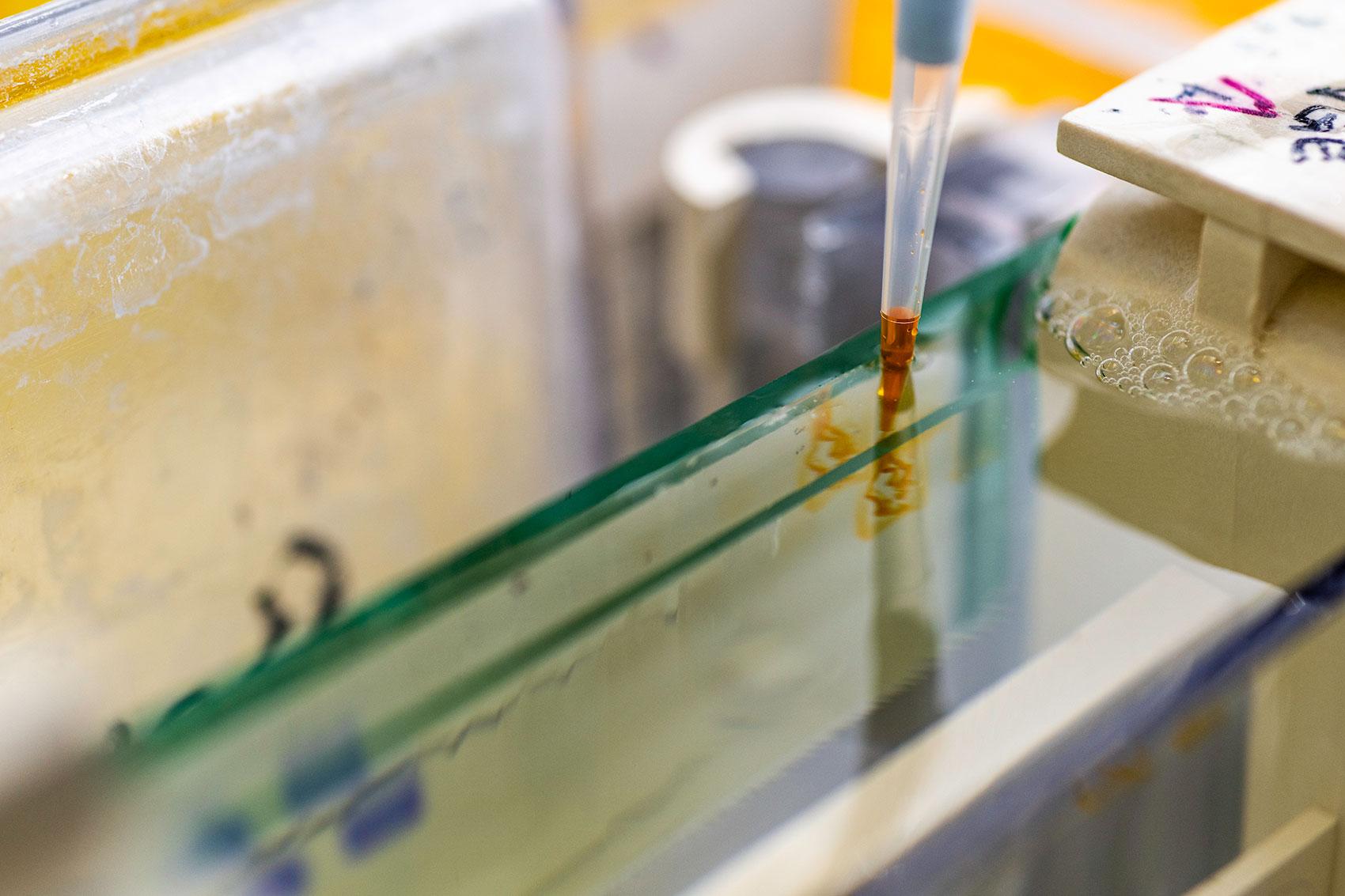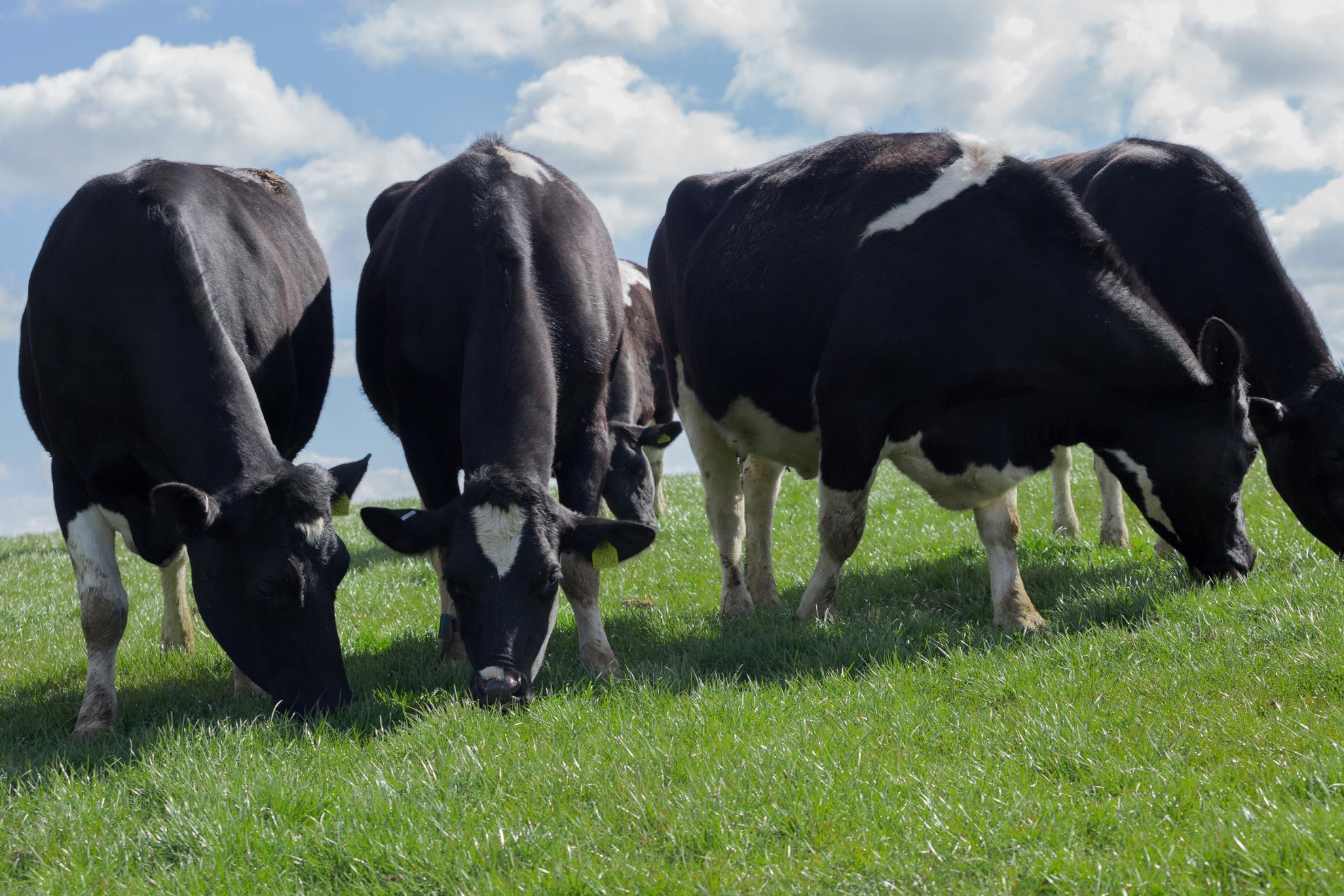The Pirbright Institute’s mission is to be the world's leading innovative centre for preventing and controlling viral diseases of livestock.
We are a National Capability, providing the UK with the capacity to predict, detect, understand, and respond to the threat and potential attack of serious viral diseases of livestock and viruses that spread from animals to humans.
Predict
Monitoring the worldwide spread of viral diseases to identify threats to economic prosperity and health, and providing an early warning system to the UK and Europe of encroaching viral threats. We do this by:
- Controlling pathogens (viral diseases) within the UK and outside
- Linking together our research and diagnostics and surveillance activities in the World Reference Laboratories
- Predicting where diseases are likely to come from and their route into the UK and elsewhere
- Leading and contributing to international disease control networks
- Helping developing countries to control and contain diseases themselves
- Looking at the incidence and prevalence of disease in different groups and source and cause of illness (epidemiology)
Understand
Our research is designed to answer questions in essential areas of science and identify gaps in our knowledge of the biology of viruses of economic importance. We increase our understanding by:
- Characterising virus structure, genetics, replication and evolution
- Exploiting genetic, genomic and proteomic (of proteins) data to understand the relationship between viruses and hosts
- Pinpointing factors influencing vector capacity from the laboratory to the outside world
- Understanding how viruses are transmitted between hosts
- Determining the interactions between viruses and their hosts and viruses and their vector
Detect
Acting as a key UK global leader in the detection, containment and elimination of viruses with potentially devastating effects to animal and/or human health as well as food and economic security. We use the following methods to do this:
- Pathogen discovery and monitoring
- Diagnostic test development and validation
- Translating research findings into commercial methods of detection
- Monitoring the presence of viruses in livestock, wildlife and vectors
- Differentiating vaccinated and infected hosts in regions where diseases are in circulation (endemic)
- Carrying out mass surveillance during and after virus outbreaks
Respond
Controlling and eliminating viral diseases through the development of vaccines, control of insect vectors, predictive modelling and other measures by:
- Providing vaccinology expertise to both academic and commercial projects
- Developing new control measures and advice for stakeholders
- Advising disease control agencies including OIE, EU and Defra
- Providing primary diagnostics during virus outbreaks
To achieve our mission, we have established strategic priorities:
- Identify, contain and eradicate economically important viral diseases of livestock which are present in, or threaten, the UK.
- Research and survey high consequence livestock and zoonotic virus diseases which are present in, or threaten, the UK.
- Act as an international hub for disease surveillance to provide early warning of possible disease incursions.
- Carry out fundamental research into virus genetics, virus-cell interactions, arthropod-virus interactions, disease pathogenesis, and livestock and avian immunology and vaccinology.
- Control livestock and zoonotic virus diseases by the development of vaccines, antivirals, diagnostics, genetic selection, genetically modified animals and arthropod vectors, and the modelling of diseases outbreaks.
- Provide national facilities and expertise in high bio-containment laboratories, insectaries, animal facilities and collections of vectors and viruses which are accessible to the UK academic and commercial communities.
Download our Science Strategy 2020-2025 for more information.

